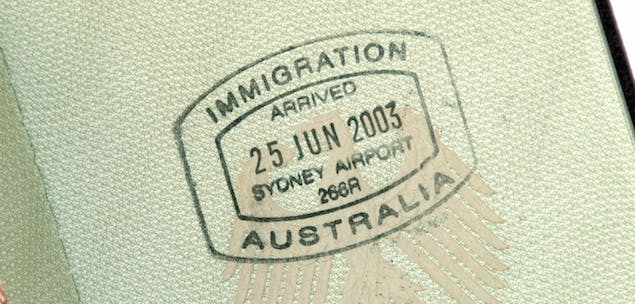Australia is lagging behind in the innovation stakes, ranking 17th for 2 years running in the Global Innovation Index 2015. We are being overtaken by the likes of New Zealand and even smaller markets like Luxembourg amongst a range of criteria, such as business sophistication, infrastructure, human capital and research and creative outputs, amongst others.
According to the report, ‘Australia’s relative GII weaknesses from innovation input lie in human capital and research and business sophistication, which can be overcome by encouraging graduates in science and engineering and communications’.
Our inability to deliver skilled and ready-for-work graduates is creating a ‘digital innovation bottleneck’ says PwC – and the ‘lack of skilled personnel is cited as the number one barrier to industry innovation’. This is predicted to get worse where even in highly innovative and competitive markets such as the USA, it is predicted that ‘by 2020, 60% of the workforce will require skill held only by 20% of the current workforce’*
So, how is this impacting us as small business owners with big ideas? What must we consider when driving an ambition for the next Uber or Airbnb?
There is an inevitable skills shortage that must be filled from overseas, involving challenges beyond the immediate skill gap:
- Migration laws are constantly changing and requirements typically become harder, not easier, to satisfy. Visa processing times and complexities create barriers to the any business in order to simply be eligible to sponsor those with required skills. Intricacies around compliance and obligations can be overwhelming, time-consuming and costly. Businesses would be wise to seek legal counsel to understand their position when looking to sponsor staff from overseas.
- Time taken to identify and source the skills required can be lengthy. Then there’s the need to handle associated relocation tasks– it’s common for roles to be left vacant for 6 months or longer, all of which can impact competitiveness and cause other delays. Business planning and preparation well in advance is the key
- The costs involved can be surprising. Of course, there are salaries to consider – and in some cases, they may need to be inflated to attract and convince the right talent to relocate. In addition, there are the costs of relocating the family, in addition to the legal compliance and associated fees. An important consideration here is protecting this investment by introducing contract clauses that require relocation expenses to be reimbursed in the event that the family wish to leave, or the employee chooses to leave within a reasonable time period after commencement.
- Convincing people with the right skills can be difficult. Especially in technology and digital where career opportunities are abundant in the US and UK, and the relative lack of prospects in Australia may not be appealing for some high potentials. In this case, the choice becomes a matter of lifestyle and family circumstances as much as the career opportunity.
- Cultural challenges to integrate staff can be a great issue to handle. It pays to understand the culture from which your prospective employee hails and offer cultural awareness training in addition to a standard relocation package to assist in preparing the family for the move.
Times, they are a changing, and there are opportunities are like never before. Customers’ increasing expectations mean that big businesses are finding it harder to innovate despite the larger budgets, they suffer with the best of us from the skills shortage, in addition to being less agile to respond to such demands and trends.
There has never been a better time to be an entrepreneur, so long as that vision and business can be supported by the necessary skills. With education pipelines sorely empty, the inevitability of migration to satisfy the demand for skills is a fact of life.
About the author:
Sharon Swift is an author, entrepreneur and seasoned expat. She has experienced life and cultures of 14 countries in her lifetime. Founder of The Expat Concierge, Sharon is on a mission to ensure expat families have a successful transition to life in Australia. The Expat Concierge is an executive relocations company which works with professionals relocating to Australia, through online self-guided relocation programs as well as accompanied assistance.

